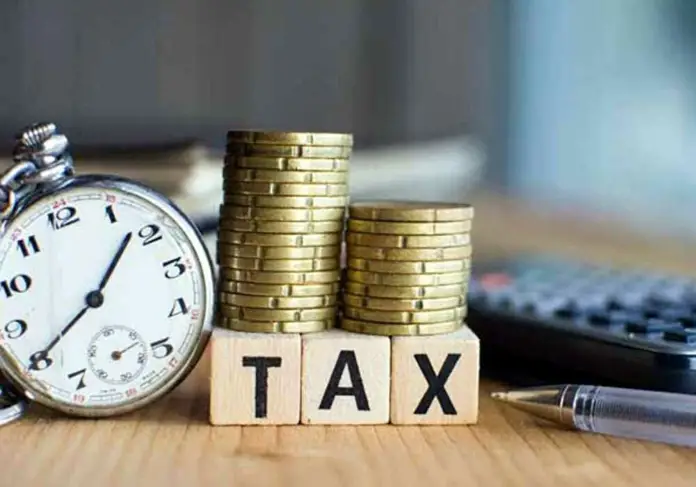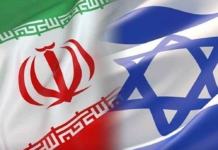Enforcement of Rule of Law determines the failure or success of democracy in any society. In the context of tax laws, it means that taxes are imposed through parliamentary process, rather than through administrative discretions (SROs).
The language of Article 77 of Constitution is couched in negative starting with the word “no”. It excludes all others to levy any tax. It shall and can only be levied for the purposes of the Federation and that too by or under the authority of the Act of Parliament.
In the past many FBR’s stalwarts had been insisting that words “by or under the authority of Act”, as used in Article 77 of the Constitution, authorise “taxation by delegation” as well which they considered justified doing so through Statutory Regulatory Orders (SROs). However, before the Supreme Court in Messers Mustafa Impex, Karachi v Government of Pakistan (2016) 114 Tax 241 (S.C Pak.), Additional Attorney General submitted”
“……the levy and exemption of tax is the function of Parliament under Article 77 of the Constitution and … power of exemption if given to the executive per se, would amount to the negation of the doctrine of parliamentary supremacy and the doctrine of separation of powers”.
The above submission was against the view of FBR and was confirmed by the Apex Court. Irritated by the judgement of the Honourable Supreme Court, the tax wizards sitting in FBR, who always hoodwinked the then Finance Minister Ishaq Dar or he himself was party to such unconstitutional measures, inserted amendments through Finance Act 2017 in Customs Act, 1969 [section 221A], Sales Tax Act, 1990 [section 74A], Income Tax Ordinance, 2001 [section 241] and Federal Excise Act, 2005 [section 43A] to nullify the judgement of Supreme Court in Messers Mustafa Impex, Karachi v Government of Pakistan (2016) 114 Tax 241 (S.C Pak.). The text of all these amendments was almost the same: “All notifications and orders issued and notified in exercise of the powers conferred upon the Federal Government, before the commencement of Finance Act, 2017, shall be deemed to have been validly issued and notified in exercise of those powers, notwithstanding anything contained in any judgment of the High Court or Supreme Court”.
One wonders what kind of wizards FBR and Ministry of Law had approved/vetted the said amendments. Article 77 of the Constitution, as enunciated by Supreme Court, could not be bypassed though such amendments in subordinate laws? These, in fact, amounted to contempt of court. The then Law Minister and Attorney General of Pakistan, both seasoned lawyers, should have advised the then Finance Minister to withdraw them as the only remedy was a constitutional amendment and not mere insertion of validation clauses in subordinate laws but they failed to do so.
Unfortunately, the then Prime Minister and the Finance Minister kept on violating the command of supreme law of the land and dictum of Supreme Court with impunity by levying and varying tax rates through Statutory Regulatory Orders (SROs). The worst example was SRO 408(I)/2017 dated May 31, 2017 through which against standard rate of 17% under Sales Tax Act, 1990, high speed diesel was subjected to rate of 34.5% and the most recent is SRO No. 179(I)/2023 dated February, 14, 2023 increasing rate of sales tax from 17 percent to 18 percent.
The landmark judgement by the Supreme Court [Messers Mustafa Impex, Karachi v Government of Pakistan (2016) 114 Tax 241 (S.C Pak.)] in unequivocal and unambiguous terms provides that power of levying taxes (which includes exemption, waiver and change in tax rates etc) under Article 77 of the Constitution is the sole prerogative of the Parliament and it cannot be delegated to any executive authority.
It is shocking that even after the judgements of Supreme Court in Messers Mustafa Impex, Karachi v Government of Pakistan (2016) 114 Tax 241 (S.C Pak.) and Engineer Iqbal Zafar Jhagra and Senator Rukhsana Zuberi v Federation of Pakistan and Others [(2013) 108 TAX 1 (S.C. Pak)], successive governments, including the incumbent, have been resorting to imposing new taxes or varying the rate of taxes through SROs violating not only Article 77 but also openly defying Article 189 of the Constitution. They are lucky that this aspect has neither been considered by the Apex Court suo muto nor has any counsel representing the parties in various tax disputes, highlighted it for seeking contempt proceedings against the contemnors.
Undoubtedly, the delegation of legislative power to the executive to vary a tax or duty renders the entire tax system unconstitutional. The so-called wizards sitting in FBR have been playing havoc with tax laws by issuing infamous SROs and administrative instructions-granting exemptions or modifying taxes imposed by the parliament or even levying taxes under the garb of rule-making powers.
Another blatant violation of Constitution remains unnoticed is raising non-tax revenue through maximum imposition of petroleum levy (PL) of Rs. 50 per litre as it remains with the Federal Government, whereas any rise in general sales tax has to be shared with the provinces as per prevalent National Finance Commission (NFC) Award giving them 57.5% of proceeds.
The Finance Act, 2018 substituted Fifth Schedule to the Petroleum Products (Petroleum Levy) Ordinance, 1961 authorising maximum imposition per litre on High Speed Diesel Oil, Motor Gasoline, Superior Kerosene Oil, Light Diesel Oil, High Octane Blending Component and E-10 Gasoline. As regards, Liquefied Petroleum Gas (produced/extracted in Pakistan), the maximum levy was fixed at Rs. 20,000 per metric ton. After this amendment, the Government was not required to go to Parliament and could raise the PL anytime while remaining within the maximum limit.
Since PL is non-tax item, any amendment in Petroleum Products (Petroleum Levy) Ordinance, 1961 could not have been made through Money Bill. The law passed in 2018 by then National Assembly was thus unconstitutional. In 2011, amendments were made in Petroleum Products (Petroleum Levy) Ordinance, 1961 through Petroleum Products (Petroleum Levy) Amendment Act, 2011, which was passed by both National Assembly and Senate as per the Constitution. It can be seen at the website of Senate of Pakistan.
The substitution of Fifth Schedule to the Petroleum Products (Petroleum Levy) Ordinance, 1961 through Finance Act 2018, passed by National Assembly on May 18, 2018, bypassing the Senate was a flagrant violation of the Constitution. Later, it was used by the coalition government of Pakistan Tehreek-e-Insaf (PTI) that was continuation of violation of supreme law of the land by the National Assembly during the Government of Pakistan Muslim League (Nawaz). It was explained by the Supreme Court of Pakistan in Workers Welfare Funds m/o Human Resources Development, Islamabad through Secretary and others v East Pakistan Chrome Tannery (Pvt.) Ltd through its GM (Finance), Lahore etc. and others [(2016) 114 TAX 385 (S.C. Pak.)] as under:
“We may develop this point further; although Article 73(3)(a) of the Constitution states that a Bill shall not be a Money Bill if it provides for the imposition or alteration of a fee or charge for any service rendered, this does not mean that if a particular levy/contribution does not fall within Article 73(2) it must necessarily fall within Article 73(3). Sub-articles (2) and (3) are not mutually exclusive. There may very well be certain levies/contributions that do not fall within the purview of Article 73(3) but still do not qualify the test of Article 73(2) and therefore cannot be introduced by way of a Money Bill, and instead have to follow the regular legislative procedure.
The above decision of the Supreme Court approved the judgement of Lahore High Court reported as 2011 PTD 2643 holding as under:
“The special legislative procedure is, therefore, an exception and must operate in its restricted scope. Being a special procedure it also has to be construed strictly as it is a deviation from the normal legislative process under the Constitution. Integrity of a money bill must be jealously guarded and matters falling outside the purview of Articles 73(2)(a) to (g) of the Constitution should not be permitted to stealthily crawl into a money bill (at times due to political sophistry of the Government in power) and adulterate its sanctity”.
At the time of passage of Finance Act, 2018, the above judgement of Supreme Court was in the field but nobody in the National Assembly, including members of PTI raised the issue as to how amendment in Petroleum Products (Petroleum Levy) Ordinance, 1961 could be made through Money Bill.
It is cardinal principle of law that if foundation of any law is unlawful then superstructure automatically collapses. Since the very amendment in Petroleum Products (Petroleum Levy) Ordinance, 1961 as part of Money Bill was unconstitutional, all actions taken thereunder are untenable in law.
Ours is an exceptional State where the legislators and administrators openly violate the Constitution and even well-educated members of civil society and human right activists ask the courts to take suo muto action or lawyers to file pro bono petitions but keep on voting these violators in power. They never even bother to sue the state functionaries for their unlawful acts or not fulfilling the obligation imposed by laws! This is called “collective apathy” or “learned helplessness’.
The only hope to enforce Article 77 read with Article 162 of the Constitution is implementation of Supreme Court’s judgement in Engineer Iqbal Zafar Jhagra and Senator Rukhsana Zuberi v Federation of Pakistan and Others (2013) 108 TAX 1 (S.C. Pak) by filing contempt application. This judgement is binding on all State organs under Article 189 of the Constitution. Usurping the exclusive power of Parliament to levy taxes by SROs, even after approval by EEC, is clear contravention of Constitution but unfortunately the august apex court has yet not taken any notice as yet. It is high time that Supreme Court Bar Association should move a contempt application for perpetual violation by the government of the dictum laid down by Supreme Court in Engineer Iqbal Zafar Jhagra and Senator Rukhsana Zuberi v Federation of Pakistan and Others (2013) 108 TAX 1 (S.C. Pak) in public interest.
Dr. Ikramul Haq, Advocate Supreme Court, specialises in constitutional, corporate, media, ML/CFT related laws, IT, intellectual property, arbitration and international tax laws. He is country editor and correspondent of International Bureau of Fiscal Documentation (IBFD) and member of International Fiscal Association (IFA). He is Visiting Faculty at Lahore University of Management Sciences (LUMS) and member Advisory Board and Visiting Senior Fellow of Pakistan Institute of Development Economics (PIDE).
Abdul Rauf Shakoori, Advocate High Court, is a subject-matter expert on AML-CFT, Compliance, Cyber Crime and Risk Management. He has been providing AML-CFT advisory and training services to financial institutions (banks, DNFBPs, Investment companies, Money Service Businesses, insurance companies and securities), government institutions including law enforcement agencies located in North America (USA & CANADA), Middle East and Pakistan. His areas of expertise include legal, strategic planning, cross border transactions including but not limited to joint ventures (JVs), mergers & acquisitions (M&A), takeovers, privatizations, overseas expansions, USA Patriot Act, Banking Secrecy Act, Office of Foreign Assets Control (OFAC).






